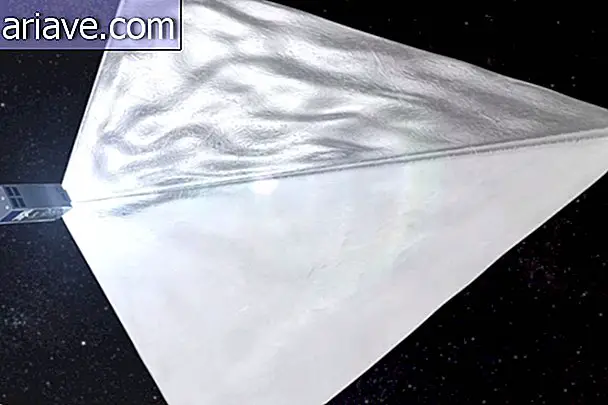5 curiosities to understand Google's quantum computer
In an article published by Nature magazine on Wednesday, 23, Google researchers revealed that they developed the first computer to achieve quantum supremacy.
In practice, Google's quantum chip, called Sycamore, performed in 200 seconds a calculation that the world's most advanced classic supercomputer would take 10, 000 years to complete. The research findings were detailed in Nature's 150th commemorative edition and are openly available to the scientific community.
Achieving quantum supremacy is the result of years of work by Google researchers and the scientific community. For years, Google has been investing in developing quantum computing, because in the next few years many calculations will become more difficult for classical computers to do.
Molecular process simulation is one of the types of research that will benefit from advances in quantum computing. These machines will help enable, among other things, the development of better batteries for electric cars, less environmentally friendly fertilizers and new medicines.
5 curiosities to understand Google's quantum computer:
1 - What is quantum computing?
It is the kind of computation that applies the principles of quantum mechanics - the branch of physics that studies the behavior of molecules, atoms, electrons, and other subatomic particles - to computer science to process large volumes of information and that allows complex problems and calculations to be performed. be resolved quickly;
2 - From bits to qubits
The first thing to understand when talking about quantum computing is the term "qubit". In classical computing, any and all information is stored or processed in the form of bits, which can be represented by 0 or 1.
In quantum computing, so-called qubits can assume numerous states between 0 and 1, in a phenomenon called superposition. Therefore, quantum processors have the potential to perform calculations significantly faster than traditional ones.
3 - Farewell to the duality of states
Qubits can have several states, according to the principles of quantum mechanics. In superposition, a particle can be in different states simultaneously (ie it can represent 0 and 1 at the same time).
Overlapping is useful because it allows more than one calculation to be performed at the same time, giving you the ability to perform complex calculations in a short time. In entanglement, which is less common, separate particles can be correlated, and when interacting with others they can assume the same state.

4 - Between modules, ports and transistors
Computer chips are made up of different elements. The first of these are modules, which contain logic gates composed of transistors. The transistor is the simplest way to process data on computers and acts as a switch that controls the flow of information.
In a classic computer, information is transmitted in bits and constant flow allows the machine to do calculations and solve problems. In quantum computing, a computer creates qubits, connects them through quantum ports, and manipulates probabilities, resulting in overlaps of a sequence of 0 and 1, which allows different calculations to be performed simultaneously.
5 - Beyond the coach
The application of quantum technologies can be very valuable. Among the areas that may benefit are chemistry, which may use these computers to develop more complex molecular models or simulations that in turn may lead to the discovery of new drugs.
But in addition, it will be possible to use these technologies in other areas, for example financial services. You can use computers to manipulate large data sets to create new products, perform risk or security analysis.

One more step
Aware that this is another step in exploring the universe of quantum computing, Google will make these processors available to collaborators and academic researchers, as well as companies interested in developing algorithms and building applications for today's Noisy Intermediate-Scale Quantum (NISQ) processors. ).
At the same time, the company will also work to continue investing in equipment and technology to improve the quantum computer and make it more stable in the coming years.
"Quantum computing gives us a chance to reach a variety of practical applications and improve the world in ways that classical computing would not allow on its own, " says Sundar Pichai, CEO of Google. "But it will also allow us to understand the universe in a deeper way."
5 curiosities to understand Google's quantum computer via TecMundo











